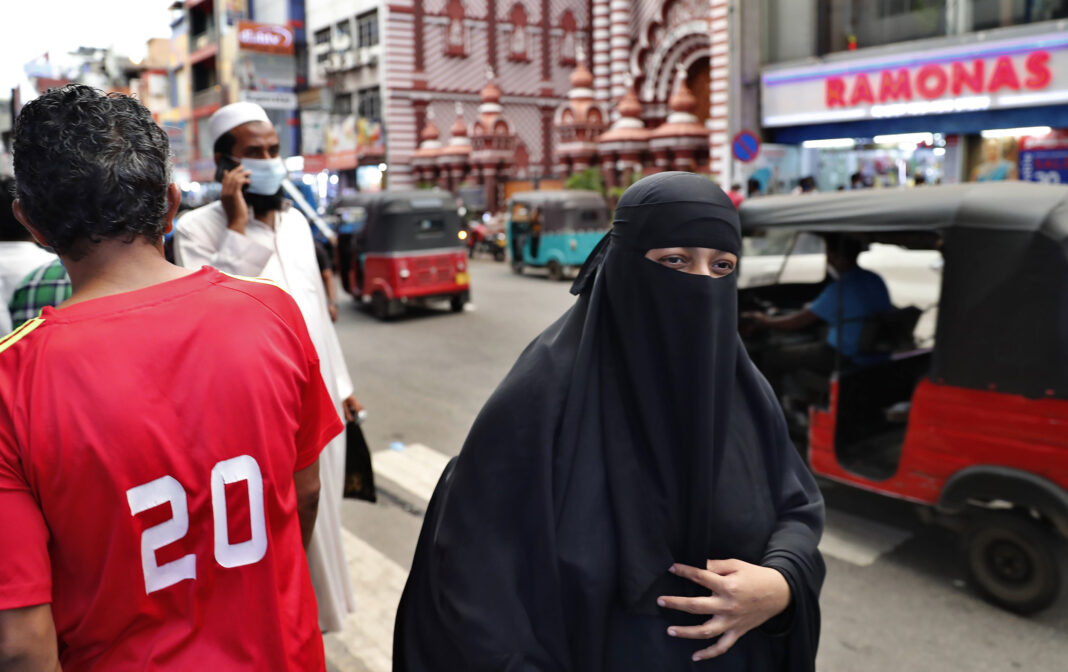The ICJ today condemned the Sri Lankan cabinet’s approval of the proposed ban on face coverings, which, if adopted by Parliament would directly discriminate against Muslim women.
The ICJ has called on the Sri Lankan Parliament to categorically reject this discriminatory proposal as a violation of the right to freedom of religion.
“The Sri Lankan Government’s justification for banning face coverings rings hollow during a time when it has quite sensibly made the wearing of face masks in public mandatory to address the COVID-19 pandemic,” said Ian Seiderman, ICJ’s Legal and Policy Director.
The Government of Sri Lanka temporarily banned full-face coverings by way of an emergency regulation in the aftermath of terrorist attacks on Easter April 2019, in which 269 people were killed and at least 500 others injured. This ban resulted in the stigmatization and harassment of Muslim women, including those who were only wearing a hijab (head covering).
“While the Sri Lankan Government has an obligation to protect its inhabitants from the threats to their lives and well-being, that protection is a part of, and not in conflict with, its overall duty to protect human rights,” said Ian Seiderman.
Freedom of religion and belief is guaranteed under article 18 of the International Covenant on Civil and Political Rights (ICCPR), to which Sri Lanka is a party. Freedom to have or adopt a religion or belief of one’s choice is similarly guaranteed by Article 10 of the Sri Lankan Constitution. Article 14 (1) (e) ensures the freedom to manifest one’s religion in worship, observance, practice and teaching.
The UN Human Rights Committee has affirmed that under the ICCPR “the observance and practice of religion or belief may include not only ceremonial acts, but also such customs as the wearing of distinctive clothing or head coverings.”
The ICJ concurs with Ahmed Shaheed, the UN Special Rapporteur on Freedom of Religion or Belief, who has stressed that “burqa bans are incompatible with international law guarantees of the right to manifest one’s religion or belief and of freedom of expression.”
“While the authorities may take necessary and proportionate steps to confirm a person’s identity to meet a specific security concern, a blanket ban on face coverings in the name of national security does not hold water,” Seiderman said. “It would invariably result in discriminatory practices and lead to the stigmatization of Muslim women,” he added.
Under ICCPR article 18(3) any limitation on freedom of religion must be non-discriminatory and must be necessary and proportionate to protect public safety, order, health, or morals or the fundamental rights and freedoms of others.
The UN Human Rights Committee has consistently held that under international law, a blanket ban on face coverings cannot be justified as necessary or proportionate to its stated legitimate aim of promoting public safety, while recognizing the need for States, in certain contexts, to be able to require that individuals show their faces. Even this restriction, however, would generally only apply to veils that fully cover faces and not, for example, to head coverings.
